Modern Family, with its mockumentary style and heartwarming portrayal of a diverse, extended family, captured the hearts of audiences worldwide for eleven seasons. The show’s end in 2020 left a void for many who cherished its relatable characters, witty humor, and comforting depiction of family life. The Dunphy-Pritchett-Tucker clan became television staples, offering viewers a weekly dose of laughter and poignant moments that resonated with the everyday absurdities and joys of family. If you found yourself missing the chaotic yet loving dynamic of Modern Family, you’re in luck. The television landscape is rich with series that explore similar themes of family, relationships, and humor, offering a comforting and entertaining viewing experience.
Fortunately for fans seeking Shows Like Modern Family, there’s a plethora of options that deliver the same blend of heart and humor. From classic sitcoms that paved the way to contemporary comedies exploring the nuances of modern families, these series are perfect for your next binge-watching session. Life, in all its messy glory, is often sad, funny, and wonderfully mundane, and these shows, much like Modern Family, encapsulate that journey, making viewers feel seen, understood, and thoroughly entertained. Get ready to discover your next favorite family sitcom as we delve into a list of shows that capture the essence of Modern Family’s charm.
30. Home Improvement (1991-1999)
Tim Taylor’s Hilarious Mishaps and Family Life Mirror Modern Sitcom Dads
Goofy sitcom dads are a beloved trope, and Modern Family boasts its fair share with Jay, Cam, and Phil. While each father figure in Modern Family has distinct quirks, they share the common thread of being imperfect yet loving dads who often overestimate their wisdom, leading to comedic situations. Viewers find humor in their well-intentioned blunders and relatable fatherly foibles.
Home Improvement, starring Tim Allen as Tim Taylor, masterfully embodies this sitcom dad archetype. Tim Taylor, the accident-prone host of a home renovation show, mirrors the lovable ineptitude seen in Modern Family’s dads. Like Phil Dunphy’s optimistic yet often misguided attempts at coolness, Tim Taylor’s overconfidence in his DIY skills and understanding of “manliness” consistently backfires, providing ample comedic fodder. His childlike enthusiasm and frequent mishaps are reminiscent of Phil’s boundless energy and comical misinterpretations of everyday situations. However, beneath the bluster and blunders, Tim Taylor, much like the dads in Modern Family, is a caring and devoted father, making him both a source of laughter and a figure of familial warmth. If you appreciate the humor derived from well-meaning but often clueless dads, Home Improvement is a must-watch among shows like Modern Family.
29. All In The Family (1971-1979)
Archie Bunker’s Generational Clashes Echo Jay Pritchett’s Modern World Struggles
Generational differences are a rich source of conflict and comedy in Modern Family, primarily exemplified through Jay Pritchett. Though Jay is a loving patriarch, his traditional values and sometimes-outdated perspectives often clash with the more progressive viewpoints of his children and grandchildren. This generational gap, played for both humor and heartwarming moments of understanding, is a central theme in Modern Family’s narrative.
All In The Family, featuring the iconic Archie Bunker, delves even deeper into the comedic and dramatic potential of generational clashes. Archie Bunker, a bigoted and set-in-his-ways working-class man, constantly grapples with the rapidly changing social landscape of the 1970s. His resistance to modern society and traditionalist views are akin to Jay Pritchett’s occasional struggles to understand the contemporary world, albeit with a more exaggerated and controversial approach. While Archie Bunker’s character is undoubtedly more abrasive and politically charged than Jay, both characters serve as comedic representations of individuals struggling to adapt to evolving societal norms. Just as Modern Family uses generational differences to explore contemporary family dynamics, All In The Family tackled similar themes within its own era, making it a culturally significant precursor to shows like Modern Family that examine family life through the lens of changing times.
28. My Wife And Kids (2000-2005)
The Kyle Family’s Ensemble Dynamic Resonates with Modern Family’s Cast Chemistry
While Modern Family cleverly experiments with the sitcom format through its mockumentary style and interwoven storylines, the heart of its success lies in the strength of its ensemble cast and the endearing characters that comprise the central family. For any family-centric sitcom, the crucial element is the audience’s connection to the family members and their individual personalities. This connection, built on relatable and engaging characters, is what truly makes a family sitcom resonate with viewers.
My Wife and Kids, starring Damon Wayans and Tisha Campbell-Martin, shares this fundamental strength with Modern Family, focusing on a captivating family ensemble. Although the family dynamics differ – the Kyles are a more traditional nuclear family compared to the extended and blended families of Modern Family – both shows prioritize the chemistry and individual quirks of their characters. Michael Kyle, portrayed by Damon Wayans, believes himself to be the head of the household, but it’s his wife Janet, played by Tisha Campbell-Martin, who subtly steers the family. This dynamic, along with their distinct children – the goofy Junior, the image-conscious Claire, and the precocious Kady – creates a family unit that is both humorous and deeply relatable. Like Modern Family, My Wife and Kids understands that the key to a successful family sitcom is crafting memorable characters that viewers can connect with and enjoy watching navigate the ups and downs of family life, solidifying its place among shows like Modern Family that prioritize ensemble cast dynamics.
27. The War At Home (2005-2007)
Generational and Outlook Clashes Between Father and Son Mirror Modern Family’s Dynamics
While The War at Home may not have achieved the widespread popularity of some other shows like Modern Family, it shares significant thematic similarities, particularly in its exploration of generational conflicts and differing worldviews within a family. One of the prominent parallels with Modern Family is the tension, often played for comedic effect, between fathers and sons who find themselves on opposite sides of a generational and ideological divide. In Modern Family, this is evident in the relationship between Jay and Mitch, and to some extent, Jay and Manny, where differing perspectives and interests create both humorous and poignant moments.
The War at Home delves into a comparable dynamic through the relationship between Dave Gold, portrayed by Michael Rapaport, and his son Larry. Dave, a cynical and sometimes insensitive father, struggles to understand his more sensitive and flamboyant son, Larry. This father-son dynamic mirrors the Jay-Mitch relationship in Modern Family, where a traditional, sometimes old-fashioned father figure attempts to connect with a son who has a more modern and expressive personality. The humor in both shows arises from the clash of personalities and perspectives, yet underlying these conflicts is a clear sense of familial love and acceptance, making The War at Home a noteworthy addition for those seeking shows like Modern Family that explore generational differences within a family context.
26. King Of The Hill (1997-2010)
Hank Hill’s Family Confusions Echo Jay Pritchett’s Parental Disconnects
King of the Hill stands out as an animated sitcom that beautifully captures the essence of family members loving each other despite their significant differences, a core theme also prevalent in Modern Family. Modern Family frequently explores the comedic and sometimes poignant disconnect between parents, especially Jay, and their children’s often baffling interests and passions. However, despite these misunderstandings, the parents in Modern Family consistently demonstrate their willingness to bridge the gap and support their children, even when perplexed by their choices.
King of the Hill mirrors this parental dynamic through the character of Hank Hill, a straitlaced and traditional propane salesman, and his relationship with his son, Bobby. Hank’s down-to-earth, simple pleasures often clash with Bobby’s more theatrical and imaginative pursuits, much like Jay’s traditional masculinity contrasts with Manny’s artistic sensibilities in Modern Family. Despite their differences, Hank, like Jay, loves his son deeply and strives to connect with him, even when he doesn’t fully comprehend Bobby’s world. Furthermore, King of the Hill features characters who would seamlessly fit into the Modern Family universe, such as Hank’s strong-willed wife Peggy and the sweet but somewhat naive cousin Luanne, adding to its appeal for fans of shows like Modern Family that celebrate the quirks and love within diverse family units.
25. Family Matters (1989-1998)
The Winslow Family’s Heart and Humor Blend Like Modern Family’s Warmth and Wit
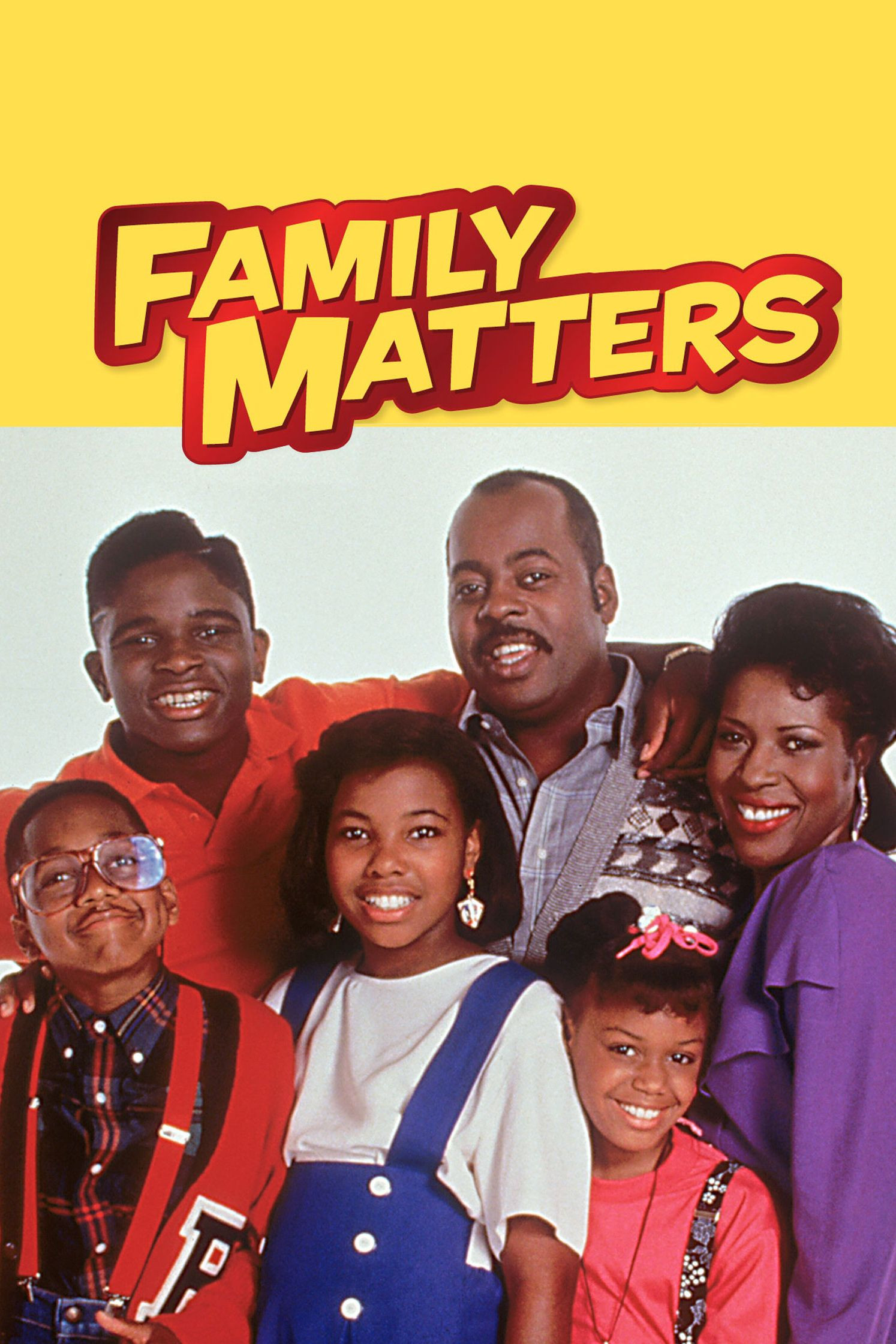 The Winslow Family and Steve Urkel in Family Matters
The Winslow Family and Steve Urkel in Family Matters
Family Matters, a prominent sitcom of the 1990s that centered on a Black American family, successfully achieved a balance of humor and heart, a quality it shares with Modern Family. Just as Modern Family navigates comedic situations while emphasizing the underlying love and support within the extended family, Family Matters explored relatable family scenarios with both lighthearted humor and genuine emotional depth. The show’s focus on the Winslow family, led by police officer Carl Winslow, and their interactions with their quirky neighbor Steve Urkel, provided a blend of slapstick comedy and heartwarming family moments.
Family Matters found its sweet spot in mixing humor with genuine emotional moments, similar to how Modern Family blends witty banter with touching displays of familial affection. While Family Matters later embraced more fantastical elements with Steve Urkel’s inventions, its core appeal remained rooted in the relatable family dynamics and the endearing characters, much like Modern Family’s strength lies in its lovable and relatable ensemble. For viewers who appreciate shows like Modern Family that offer a blend of laughter and heartwarming family moments, Family Matters provides a nostalgic and enjoyable viewing experience with a similar emphasis on family bonds and comedic situations.
24. Jane The Virgin (2014-2019)
Multi-Generational Family Dynamics and Ensemble Feel Echo Modern Family’s Structure
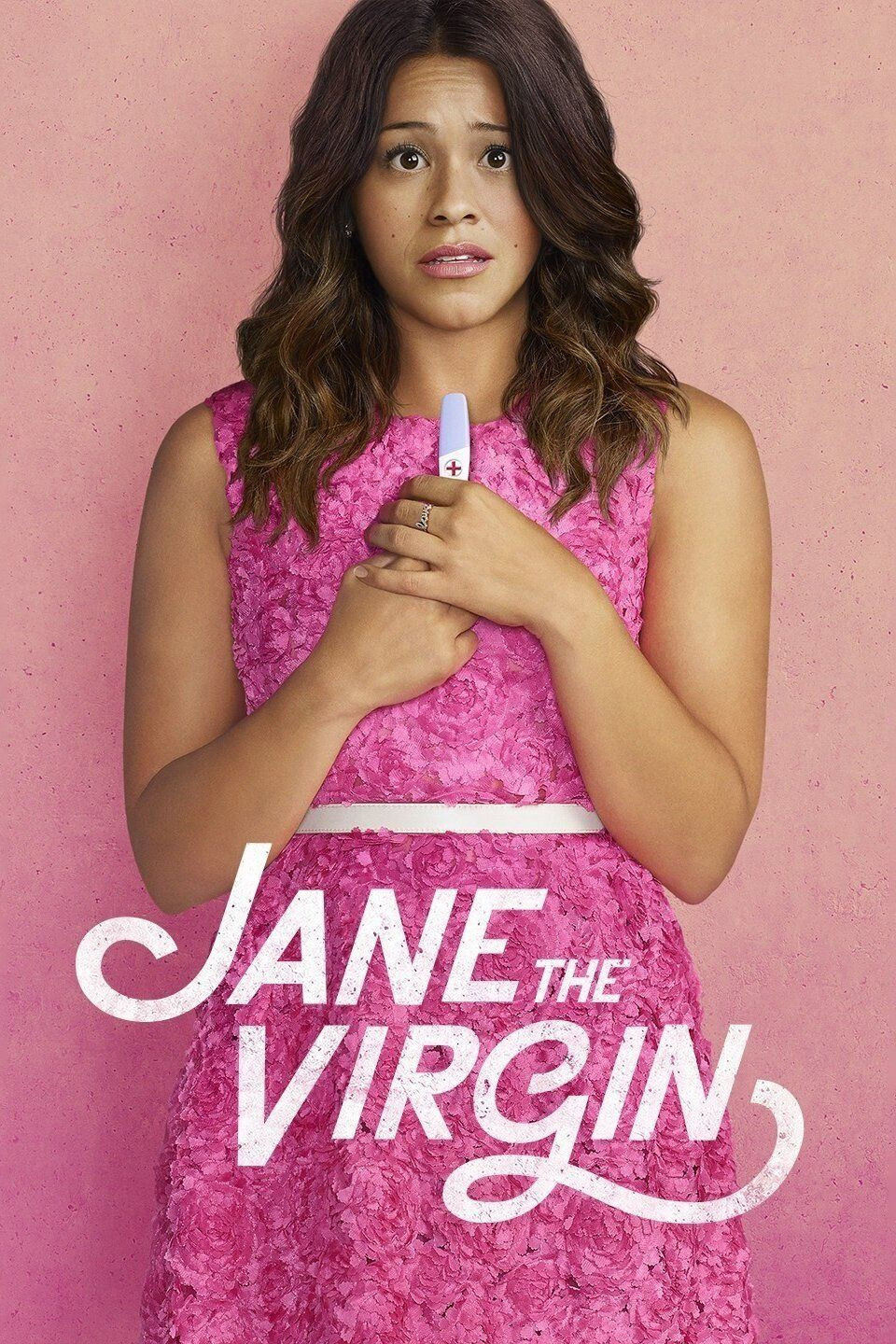 Jane Villanueva in Jane the Virgin
Jane Villanueva in Jane the Virgin
While some shows like Modern Family feature a central protagonist, they can still effectively capture the ensemble family feel that is a hallmark of Modern Family. Modern Family thrives on showcasing the interwoven stories of multiple family units and characters, creating a rich tapestry of relationships and individual journeys. Even though the mockumentary style provides a certain focus, the show’s strength lies in its ability to balance the narratives of numerous characters within the larger family structure.
Jane The Virgin, inspired by a telenovela, embodies this ensemble family dynamic, despite revolving around Jane Villanueva. The show’s premise, where Jane is mistakenly artificially inseminated, sets in motion a series of events that expand her family and create new relationships for her, her mother, and her grandmother. This multi-generational family focus, with storylines that weave together the lives of different family members, is reminiscent of Modern Family’s structure. Although Jane The Virgin leans more into drama than Modern Family, both series skillfully examine how different generations within a family influence and shape each other. The central plot of a family rallying together to support Jane through her unexpected pregnancy also echoes storylines in Modern Family, such as Haley’s pregnancy, further solidifying Jane The Virgin as a compelling choice for fans of shows like Modern Family who appreciate ensemble casts and explorations of multi-generational family life.
23. Boy Meets World (1993-2000)
Cory Matthews’ Coming-of-Age Focus Resonates with Modern Family’s Younger Generation Appeal
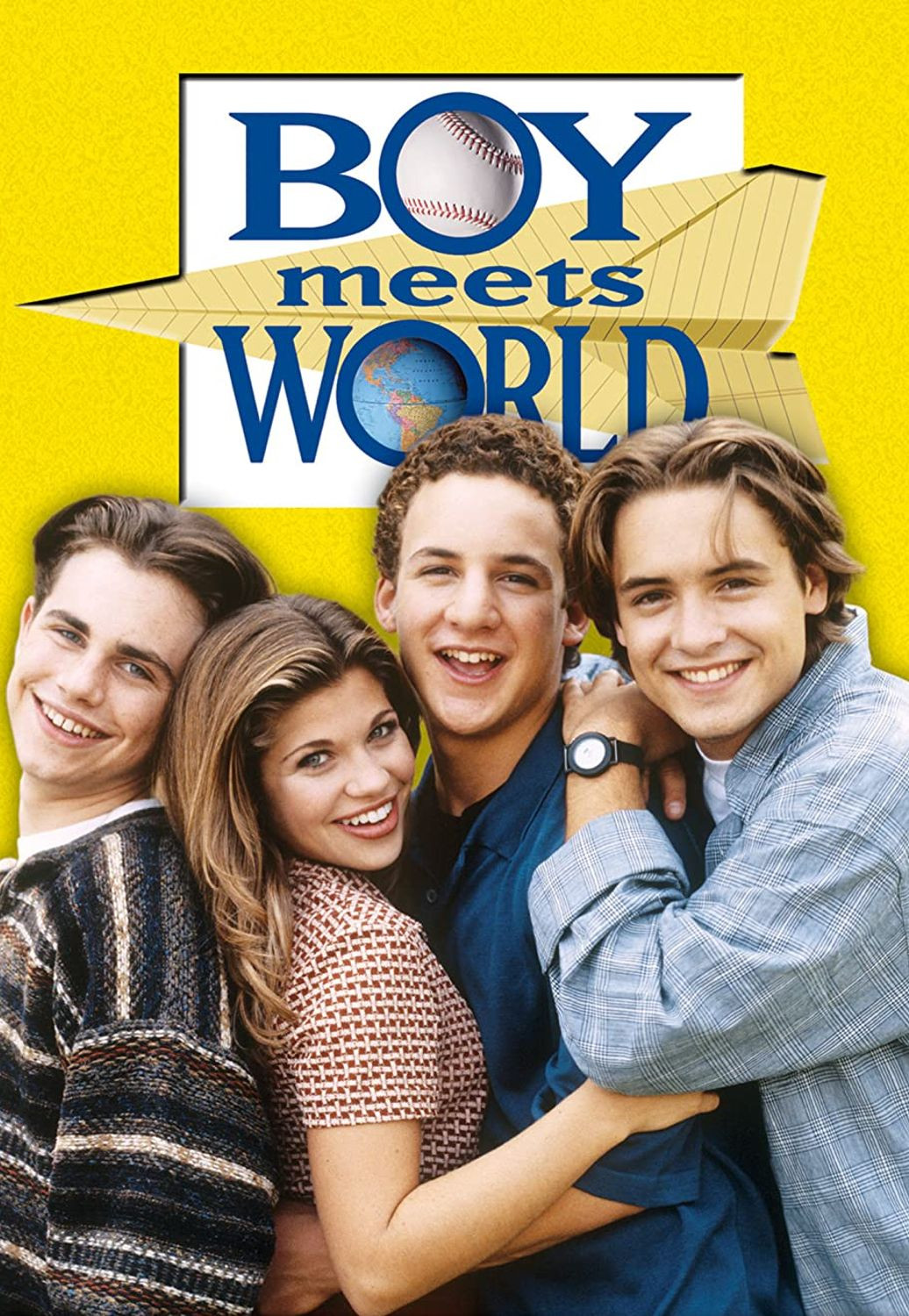 Cory and Shawn in Boy Meets World
Cory and Shawn in Boy Meets World
When Boy Meets World premiered, the landscape of family sitcoms was largely dominated by shows that centered on parents, with children often playing secondary roles. Traditional family sitcoms typically focused on the parental perspective, with children’s storylines serving as supporting narratives. Boy Meets World, however, revolutionized this formula by shifting the focus to the children, specifically Cory Matthews and his best friend Shawn Hunter, as they navigated the challenges of growing up.
Boy Meets World flipped the script, prioritizing the experiences of Cory and Shawn as they matured from middle school through college. This shift in perspective is appealing to Modern Family audiences who might have wished for more focus on Haley, Alex, and Luke’s storylines. While Modern Family provides glimpses into the lives of its younger characters, Boy Meets World puts the coming-of-age journey of its younger leads front and center. However, Boy Meets World still retains strong family elements, particularly through Cory’s relationships with his parents, his older brother Eric, and eventually, Shawn’s integration into the Matthews family. The show’s exploration of friendships, family bonds, and personal growth, especially from the perspective of its younger characters, makes it a relatable and engaging watch for those who appreciate the family dynamics and coming-of-age themes present in shows like Modern Family. The sequel series, Girl Meets World, further emphasizes this connection by focusing on Cory and Topanga’s daughter, cementing the franchise’s appeal to Modern Family fans.
22. Mom (2013-2021)
Imperfect Parent Portrayal and Sitcom Shenanigans Mirror Modern Family’s Balance
Mom, starring Allison Janney and Anna Faris, explores the complex relationships between three generations of Plunkett women as they grapple with addiction, recovery, and family bonds. The series centers on Christy, the titular “Mom,” as she navigates sobriety and attempts to rebuild her life while dealing with her own mother, Bonnie, who also struggles with addiction. This premise introduces a layer of serious drama often not seen in traditional sitcoms.
Mom strikes a compelling balance between sitcom humor and serious drama, much like Modern Family manages to blend lighthearted comedy with genuine emotional depth. While Modern Family often portrays its parents as loving and supportive, it also acknowledges their imperfections and mistakes. Mom takes this concept further, delving into the real-life struggles of imperfect parents dealing with significant challenges like substance abuse. This willingness to explore darker themes within a comedic framework is a shared trait with some of the more emotionally resonant episodes of Modern Family. The imperfect nature of the Plunkett women, their comedic mishaps, and their journey towards recovery and stronger family bonds offer a refreshing and grounded perspective compared to the often lighthearted and fun-centric tone of Modern Family, yet both shows find humor in the everyday chaos of family life, making Mom a worthwhile watch for fans of shows like Modern Family who appreciate a blend of comedy and emotional realism.
21. Parenthood (2010-2015)
Expansive Ensemble and Multi-Generational Drama Resonate with Modern Family’s Scope
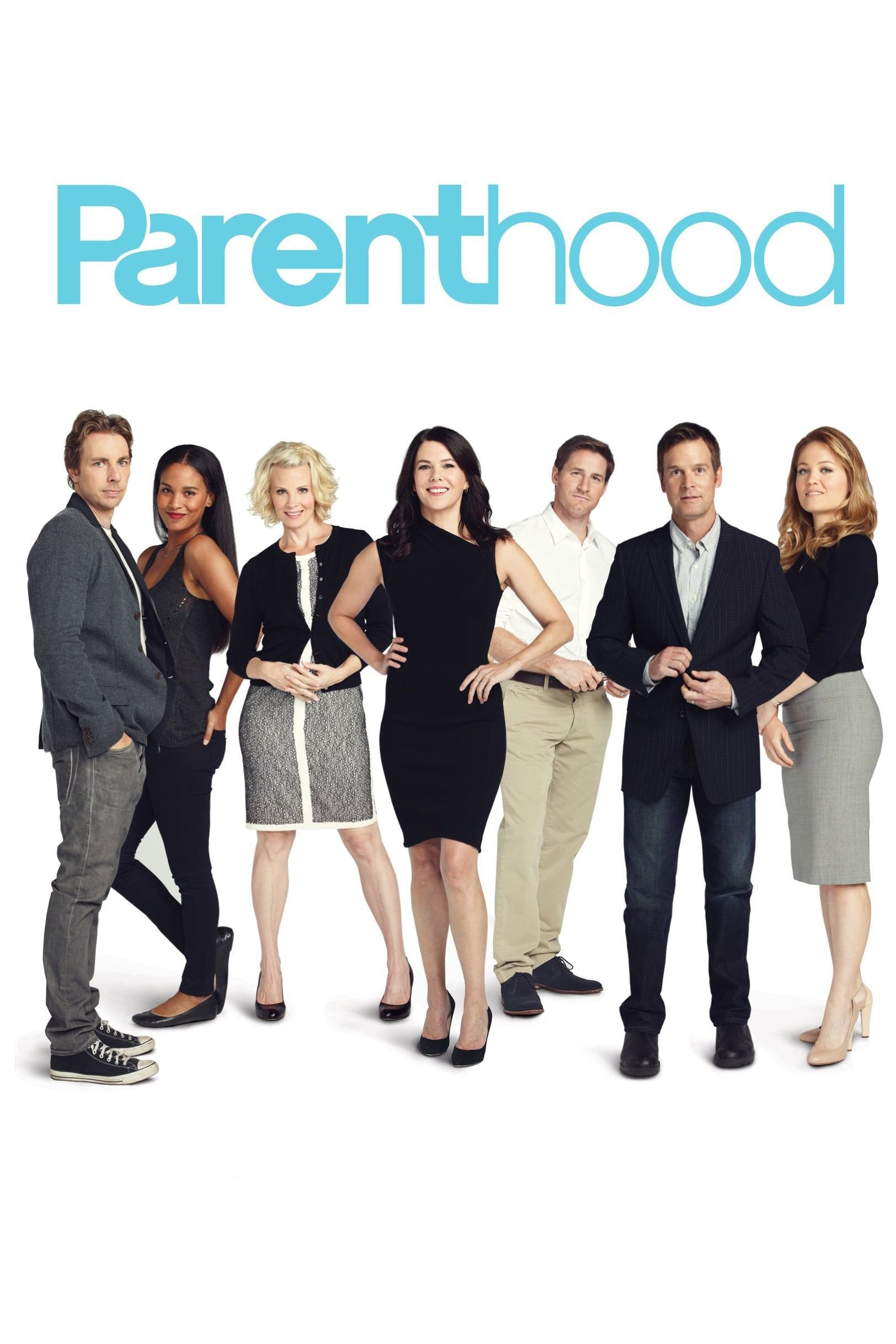 The Braverman Family in Parenthood
The Braverman Family in Parenthood
Parenthood, in many ways, can be considered the dramatic counterpart to Modern Family. While Modern Family leans heavily into comedy with its mockumentary style and lighthearted tone, Parenthood delves deeper into the dramatic aspects of family life, often evoking more tears than laughs. However, both series share a fundamental focus on the intricate connections and relationships within a large, multi-generational family.
Parenthood feels like a dramatic exploration of similar family themes present in Modern Family, focusing on the Braverman family across multiple generations. The Bravermans, with their four adult children and their respective families, mirror the extended family structure of Modern Family. The show balances individual character storylines with larger family narratives, allowing viewers to witness the growth and maturation of the Braverman children over its five seasons. While Parenthood incorporates comedic moments, its primary strength lies in its emotionally resonant portrayal of family dynamics, tackling realistic challenges and heartwarming triumphs. The expansive ensemble cast of Parenthood, much like Modern Family, elevates the show by making each character feel distinct and relatable, fostering a strong emotional investment from the audience. For those who appreciate the multi-generational family dynamics and ensemble cast of Modern Family but are seeking a more emotionally driven narrative, Parenthood is a compelling choice among shows like Modern Family.
20. The Simpsons (1989-Present)
Dysfunctional Family Humor and Wacky Situations Mirror Modern Family’s Absurdity
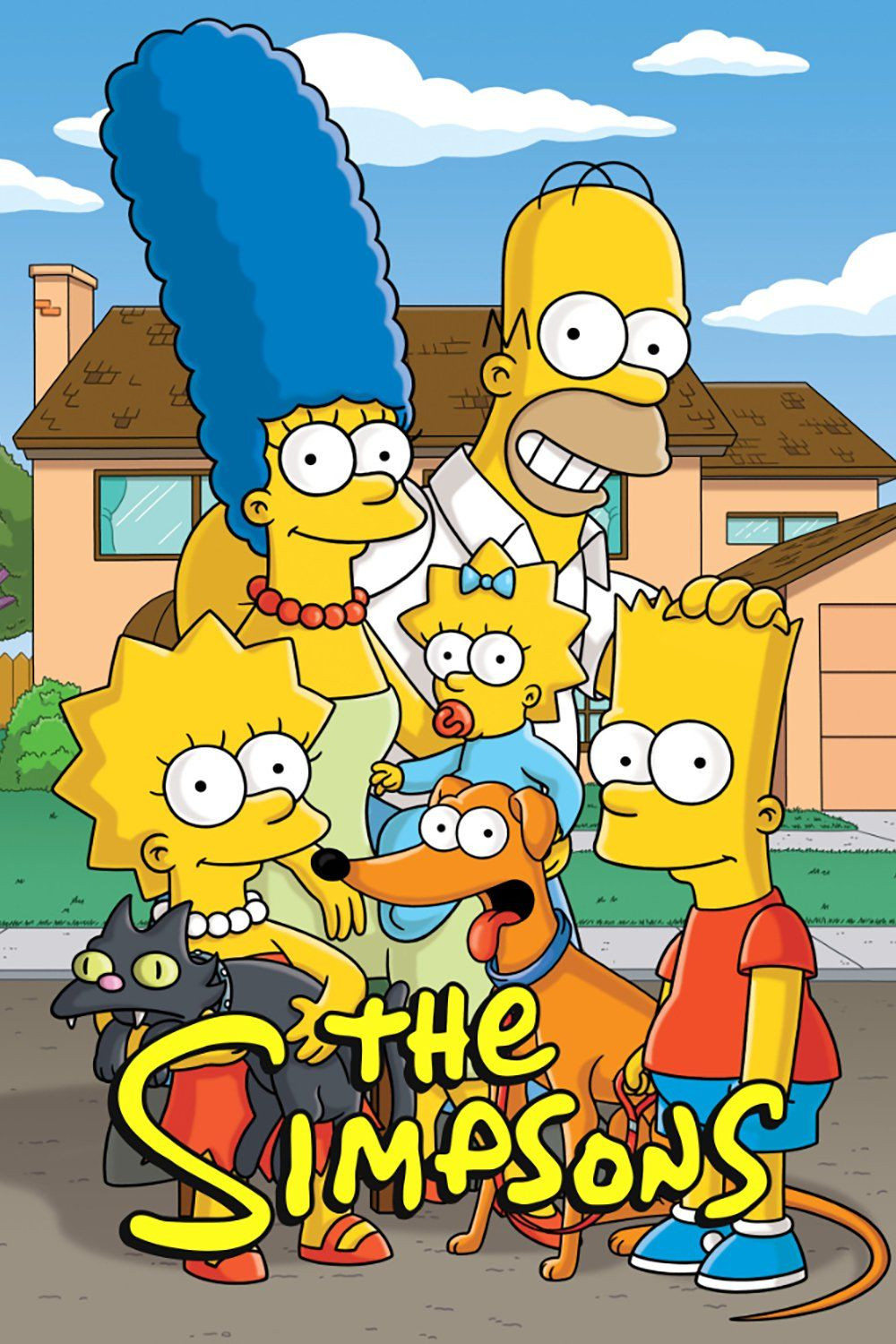 The Simpsons Family
The Simpsons Family
Modern Family excels at finding humor in wacky situations and showcasing the often-outrageous personalities within its family. The show embraces the absurdities of family life, creating comedic scenarios from everyday occurrences and the eccentricities of its characters. This willingness to lean into the ridiculous and over-the-top contributes significantly to Modern Family’s comedic appeal.
The Simpsons, a long-running animated classic, is a foundational influence for shows that embrace dysfunctional family humor, including Modern Family. The Simpsons, in its depiction of the titular family’s life in Springfield, is hilariously absurd and exaggerated, yet paradoxically relatable. Despite the cartoonish nature of the show, viewers connect with the imperfect Simpson family and their chaotic everyday life. Just as Modern Family celebrates the imperfections and quirks of its characters, The Simpsons embraces the faults of its central family, creating humor from their flaws and misadventures. While The Simpsons is more overtly satirical and less focused on realistic family dynamics than Modern Family, both shows find comedic gold in the chaos and imperfections of family life, making The Simpsons a cornerstone for shows like Modern Family that explore dysfunctional family humor.
19. Full House (1987-1995)
Unconventional Family Unit and Heartwarming Chaos Echo Modern Family’s Charm
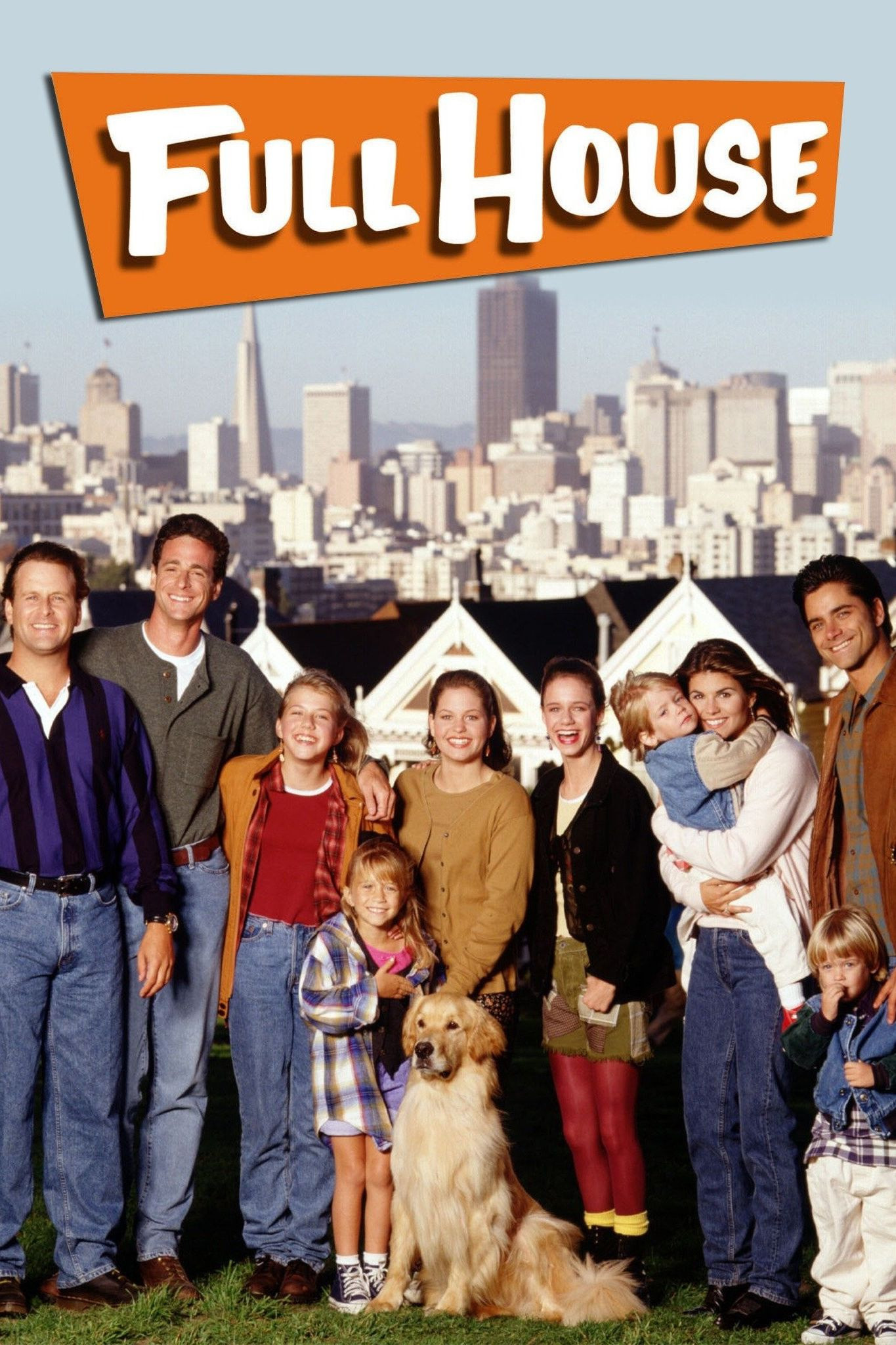 The Tanner Family in Full House
The Tanner Family in Full House
The era of ’90s family sitcoms produced numerous classics, and Full House stands out for its popularity and cultural impact. Like Modern Family, Full House tackles the challenges of parenthood and the adventures of childhood, all within the framework of an unconventional family structure. Modern Family showcases a blended and extended family, while Full House presents a family unit formed in the wake of tragedy, highlighting the diverse ways families can be created and thrive.
Full House, like Modern Family, deals with the struggles of parents and the youthful escapades of children while portraying an unorthodox family unit. The sitcom follows Danny Tanner, a widowed father, who enlists his brother-in-law Jesse and best friend Joey to help raise his three daughters. This unique setup of three men raising three girls creates a dynamic that, while different in specifics, shares the spirit of Modern Family’s blended family approach. The chaos and love within the Full House family, though sometimes leaning into sentimentality, are reminiscent of the warmth and affection that permeates Modern Family. While Full House’s humor is more wholesome and less edgy than Modern Family’s, the charming vibes of mismatched households coming together are similar, making Full House a classic example of shows like Modern Family that celebrate the heartwarming chaos of family life.
18. 3rd Rock From The Sun (1996-2001)
Alien Perspective on Human Family Life Provides Relatable Comedy Similar to Modern Family’s Observations
3rd Rock from the Sun, with its premise of aliens disguised as humans, might initially seem distant from the grounded family sitcom setting of Modern Family. However, despite the fantastical element of aliens studying human behavior, 3rd Rock from the Sun shares surprising thematic similarities with Modern Family, particularly in its comedic observations of family dynamics and human behavior.
3rd Rock from the Sun, while featuring extraterrestrials, explores universal themes of family and human relationships through a comedic lens, much like Modern Family uses its mockumentary style to observe and comment on family life. The aliens, attempting to assimilate into human society by forming a seemingly typical American family, encounter the same everyday challenges and absurdities that the families in Modern Family face. The humor in 3rd Rock from the Sun stems from the aliens’ misunderstandings of human customs and their often-comical attempts to navigate human interactions, creating a relatable comedic experience akin to the fish-out-of-water scenarios in Modern Family. The endearing and goofy nature of characters like Dick Solomon, similar to Phil Dunphy and Cam Tucker in Modern Family, adds to the show’s charm and makes it a surprisingly fitting recommendation for fans of shows like Modern Family who appreciate character-driven comedy with a focus on family-like dynamics, even in unconventional settings.
17. Frasier (1993-2004)
Adult Sibling and Parent Dynamics Resonate with Modern Family’s Intergenerational Relationships
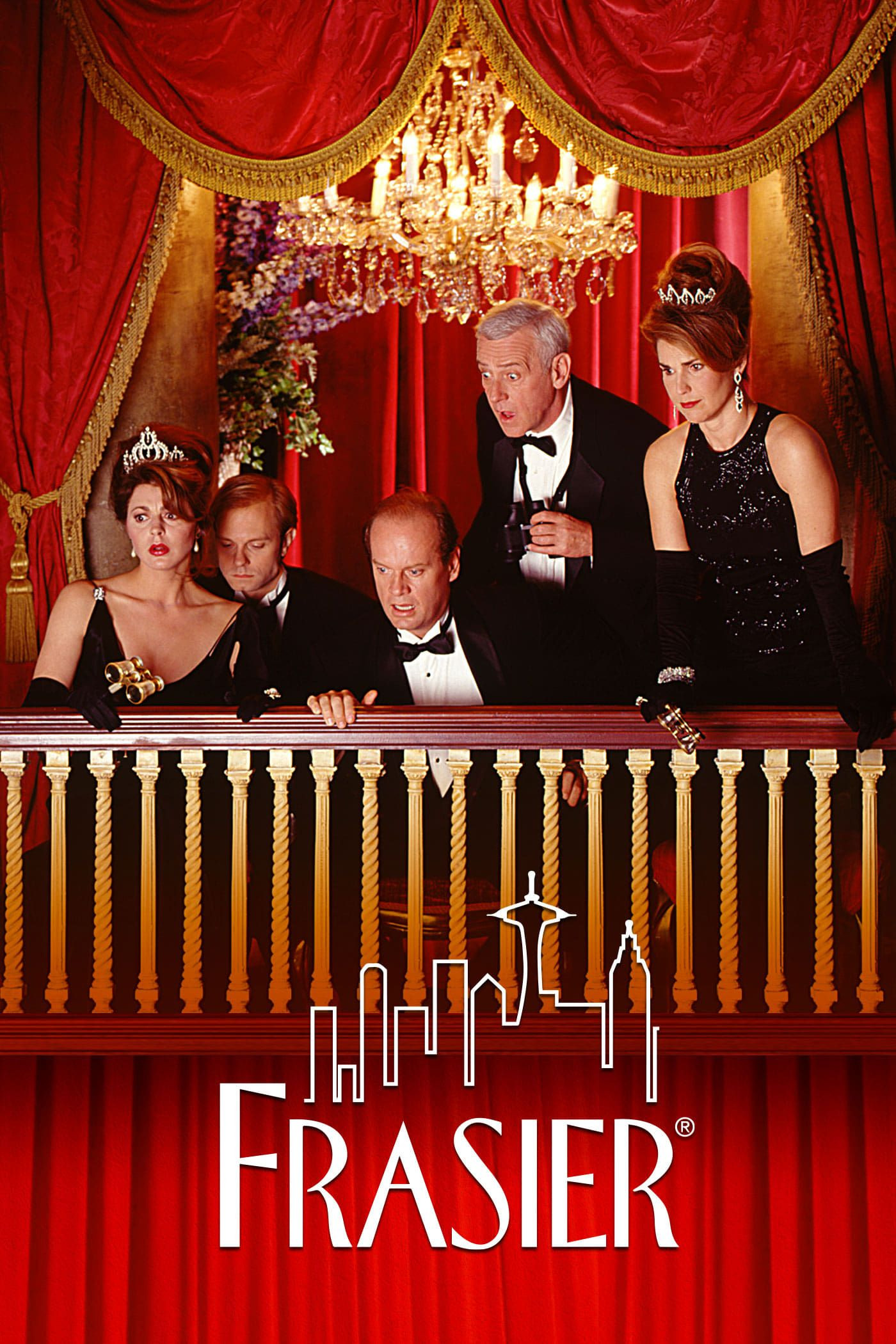 Frasier Crane and Family in Frasier
Frasier Crane and Family in Frasier
While many shows like Modern Family center on parents with young children, Frasier manages to capture a similar comedic and heartwarming feel while focusing on adult siblings and their relationship with their aging parent. Modern Family explores the complexities of intergenerational relationships, showcasing the bonds between parents, children, and grandchildren. Frasier, a spin-off of Cheers, carves its own niche by focusing on a different stage of family life: adulthood and the evolving dynamics between adult children and their parents.
Frasier captures a similar family-centric feel to Modern Family, but with a focus on adult relationships within a family unit. The show revolves around Frasier Crane’s return to Seattle, his living situation with his father Marty, and his relationship with his brother Niles. The witty banter and character-driven humor, hallmarks of Frasier, resonate with the sophisticated comedy found in Modern Family. The dynamic between Frasier and his father Marty, with their contrasting personalities and lifestyles, often mirrors the parent-child relationships in Modern Family, such as Jay and Manny or even Jay and Mitchell, where differences in personality and perspective create both conflict and comedic opportunities. The sharp writing and memorable characters in Frasier, which earned it numerous Emmy Awards, make it a sophisticated and enjoyable choice for fans of shows like Modern Family who appreciate character-driven sitcoms with a focus on family relationships, even in adulthood.
16. Everybody Loves Raymond (1996-2005)
Dysfunctional Family Closeness and Marital Humor Echo Modern Family’s Relatability
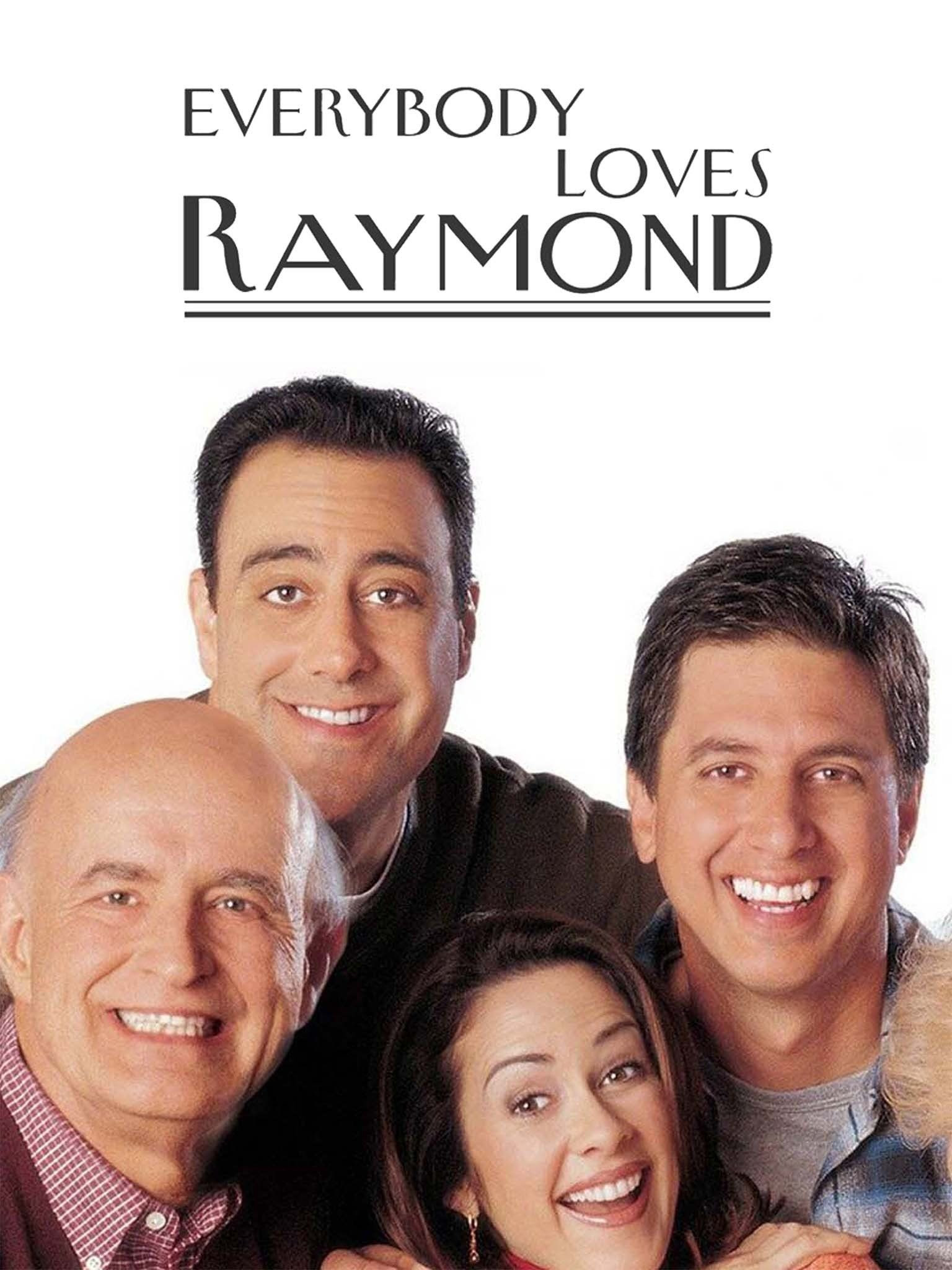 The Barone Family in Everybody Loves Raymond
The Barone Family in Everybody Loves Raymond
Much of the humor in Modern Family arises from the relatable, sometimes combative, moments within marriages and the challenging yet loving relationships within a family. The show thrives on depicting the everyday friction and affection that coexist in family life, creating humor from both the mundane and the exceptional. This focus on relatable family dynamics is a key ingredient in Modern Family’s widespread appeal.
Everybody Loves Raymond excels at capturing this same kind of relatable family humor, focusing on the Barone family and their close-knit, often intrusive, family dynamics. The show centers on Raymond, a sportswriter, his wife Debra, and his parents who live across the street. This proximity and the ensuing family interactions create a constant stream of comedic scenarios, much like the interwoven family lives in Modern Family. Everybody Loves Raymond, similar to Modern Family, humorously examines the ways in which family closeness can be both comforting and exasperating. The recognizable marital conflicts between Raymond and Debra, mirroring the entertaining dynamics between Phil and Claire in Modern Family, and the overbearing nature of Raymond’s parents, create a rich tapestry of family humor that resonates with viewers who appreciate shows like Modern Family that find comedy in the everyday realities of family life.
15. The Middle (2009-2017)
Normal Family Flaws and Relatable Charm Mirror Modern Family’s Appeal
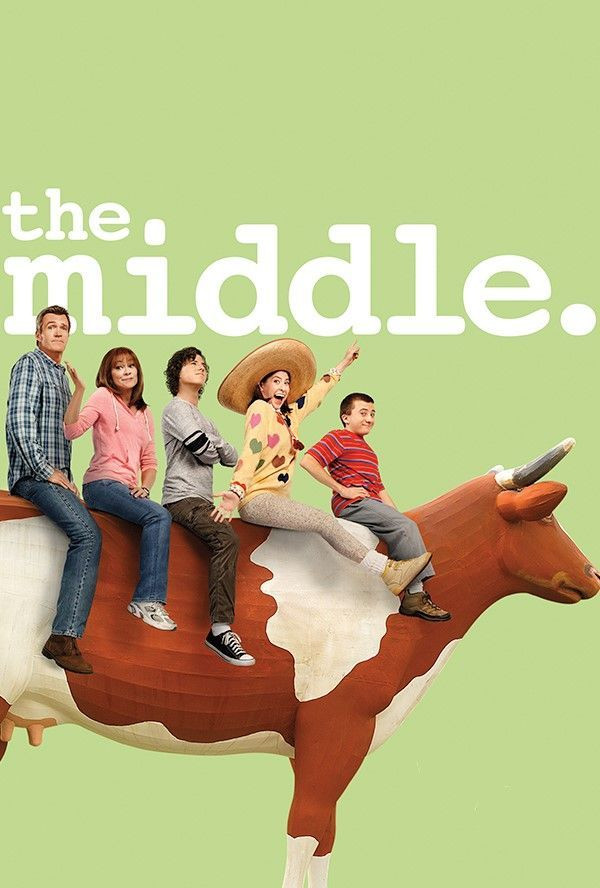 The Heck Family in The Middle
The Heck Family in The Middle
The Middle centers on the Hecks, a lower middle-class family in Indiana, navigating the daily challenges and humorous moments of family life. The show, narrated by Frankie Heck, the harried mother of three, provides an authentic and relatable portrayal of a “normal” American family. This focus on the everyday struggles and triumphs of an average family is a key element in The Middle’s charm.
The Middle, much like Modern Family, achieves popularity by showcasing a normal family with all its flaws and endearing qualities. While Modern Family presents a more affluent and glamorous family setting, The Middle grounds its humor in the more relatable realities of a working-class family. The Hecks, with their distinct personalities – the popular but academically unmotivated Axl, the socially awkward Sue, and the introverted bookworm Brick – create a dynamic that is both funny and heartwarming, mirroring the diverse personalities within the Dunphy-Pritchett-Tucker clan. The scenarios the Hecks encounter, while often comedic, are rooted in everyday family life, making them highly relatable to a broad audience. The show’s willingness to depict the financial struggles of a modern family adds another layer of relatability, potentially resonating even more strongly with viewers who might find the privileged lifestyles in Modern Family less familiar. For those seeking shows like Modern Family that celebrate the charm and humor of ordinary family life, The Middle is an excellent choice.
14. Friday Night Dinner (2011-2020)
Hijinks in Family Gatherings and Absurdist Humor Echo Modern Family’s Get-Together Chaos
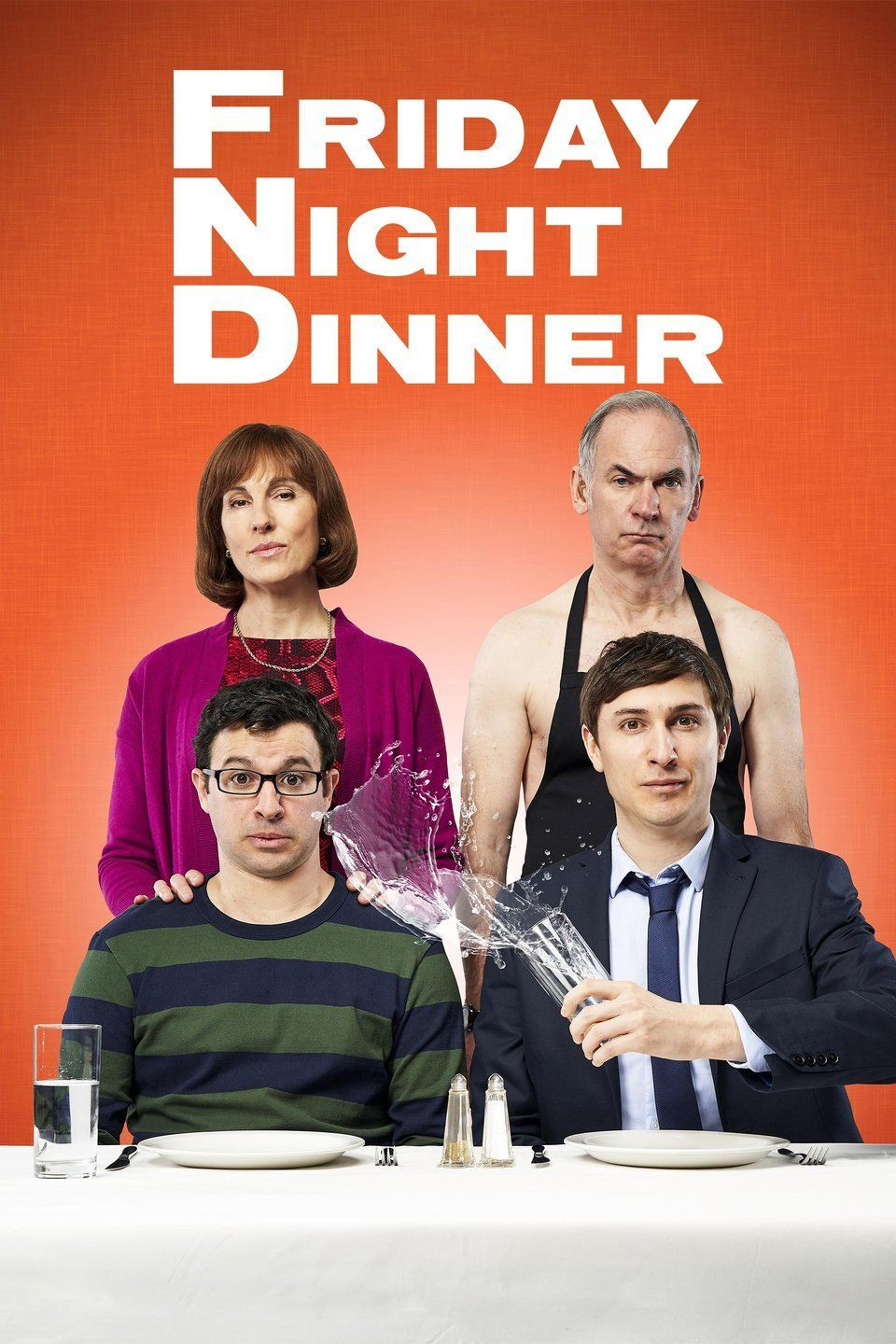 The Goodman Family in Friday Night Dinner
The Goodman Family in Friday Night Dinner
Modern Family often showcases the comedic chaos that can erupt during simple family get-togethers, particularly the frequent family dinners. These gatherings, intended to be pleasant and bonding experiences, often devolve into humorous mishaps and unexpected situations, highlighting the unpredictable nature of family life. This concept of family dinner chaos is central to the British comedy Friday Night Dinner.
Friday Night Dinner, a British sitcom, amplifies the concept of chaotic family gatherings, focusing on the weekly Shabbat dinner of the Goodman family. Each dinner is predictably interrupted by unexpected guests, family pranks, and other absurd scenarios, creating a consistent stream of comedic mishaps. Just as Modern Family finds humor in the unexpected turns of family events, Friday Night Dinner thrives on the predictable unpredictability of the Goodman family dinners. While Friday Night Dinner employs a more absurdist and dry British humor compared to Modern Family’s more mainstream American style, both shows share a comedic focus on the hijinks that ensue when families come together. The Goodman family’s dynamic, while distinct in its British context, shares the underlying theme of family love amidst chaos, making Friday Night Dinner a worthwhile recommendation for fans of shows like Modern Family who enjoy comedies centered around family gatherings and unexpected comedic turns.
13. Single Parents (2018-2019)
Diverse Parenting Dynamics and Extended Family Feel Echo Modern Family’s Contemporary Approach
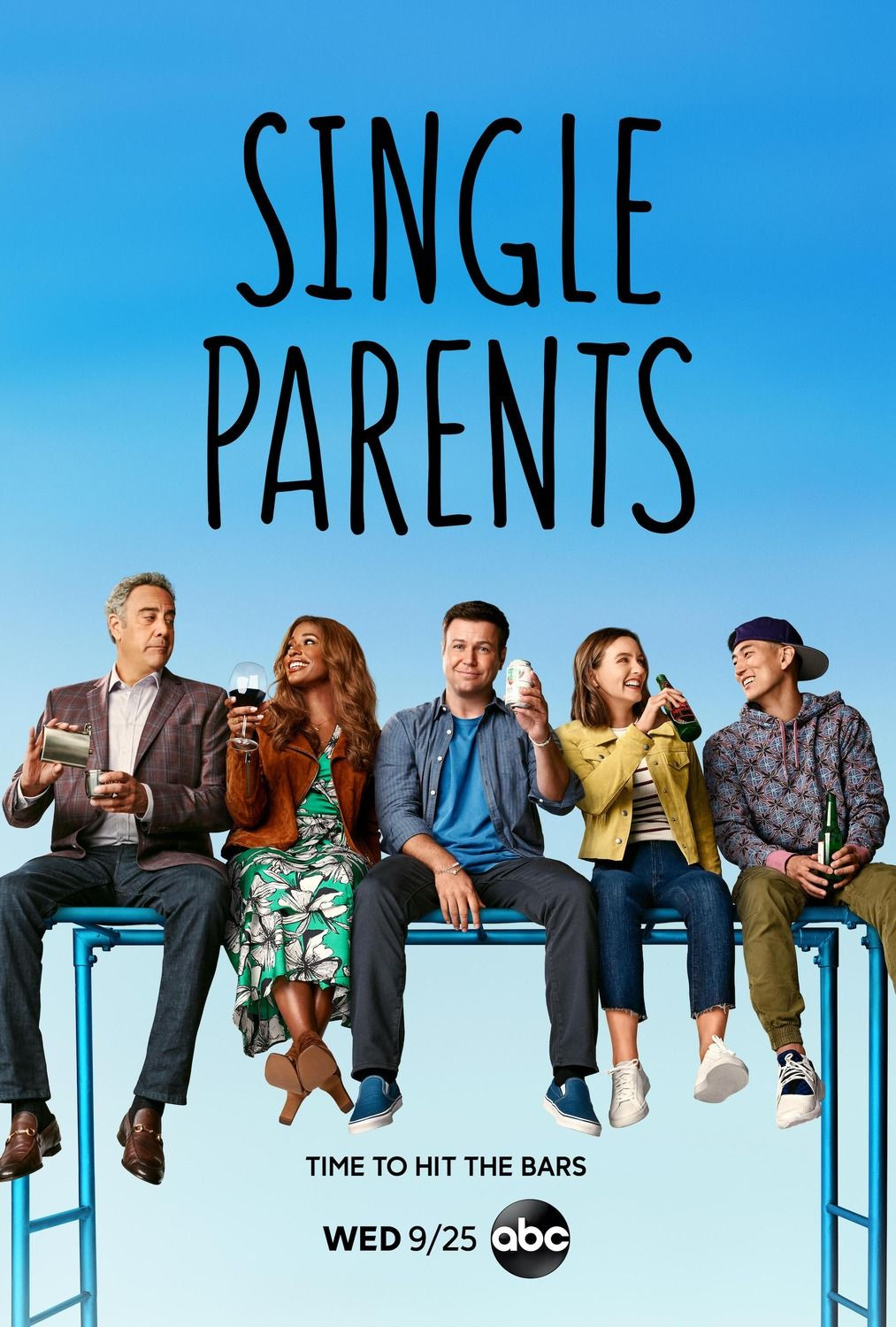 The Single Parents Ensemble Cast
The Single Parents Ensemble Cast
Single Parents, debuting in 2018, presents a contemporary take on family sitcoms by focusing on a group of single parents who form a support system. Modern Family, in its own way, also offered a refreshing take on the family sitcom formula by showcasing diverse family structures and relationships. Single Parents, while focusing on single-parent households, similarly explores varied family dynamics and the challenges of modern parenting.
Single Parents takes a contemporary approach to family dynamics, much like Modern Family distinguished itself from traditional sitcoms. The show follows Will, a divorced parent who is immersed in raising his daughter, and the group of other single parents who help him re-enter the world outside of parenthood. This ensemble of single parents, each with unique parenting styles and struggles, creates a dynamic that is reminiscent of the extended family structure of Modern Family, where diverse personalities and approaches to family life coexist. Both shows subvert traditional sitcom tropes, with Modern Family using the mockumentary format and Single Parents focusing on the single-parent support group dynamic. The clever premise of Single Parents, exploring different parenting styles and modern family households, allows it to comment on contemporary family life in a humorous and insightful way, making it a fitting choice for viewers who appreciate shows like Modern Family that offer a fresh and contemporary perspective on family sitcoms.
12. The Mick (2017)
Flawed Guardians and Unconventional Family Dynamics Echo Modern Family’s Imperfect Parent Theme
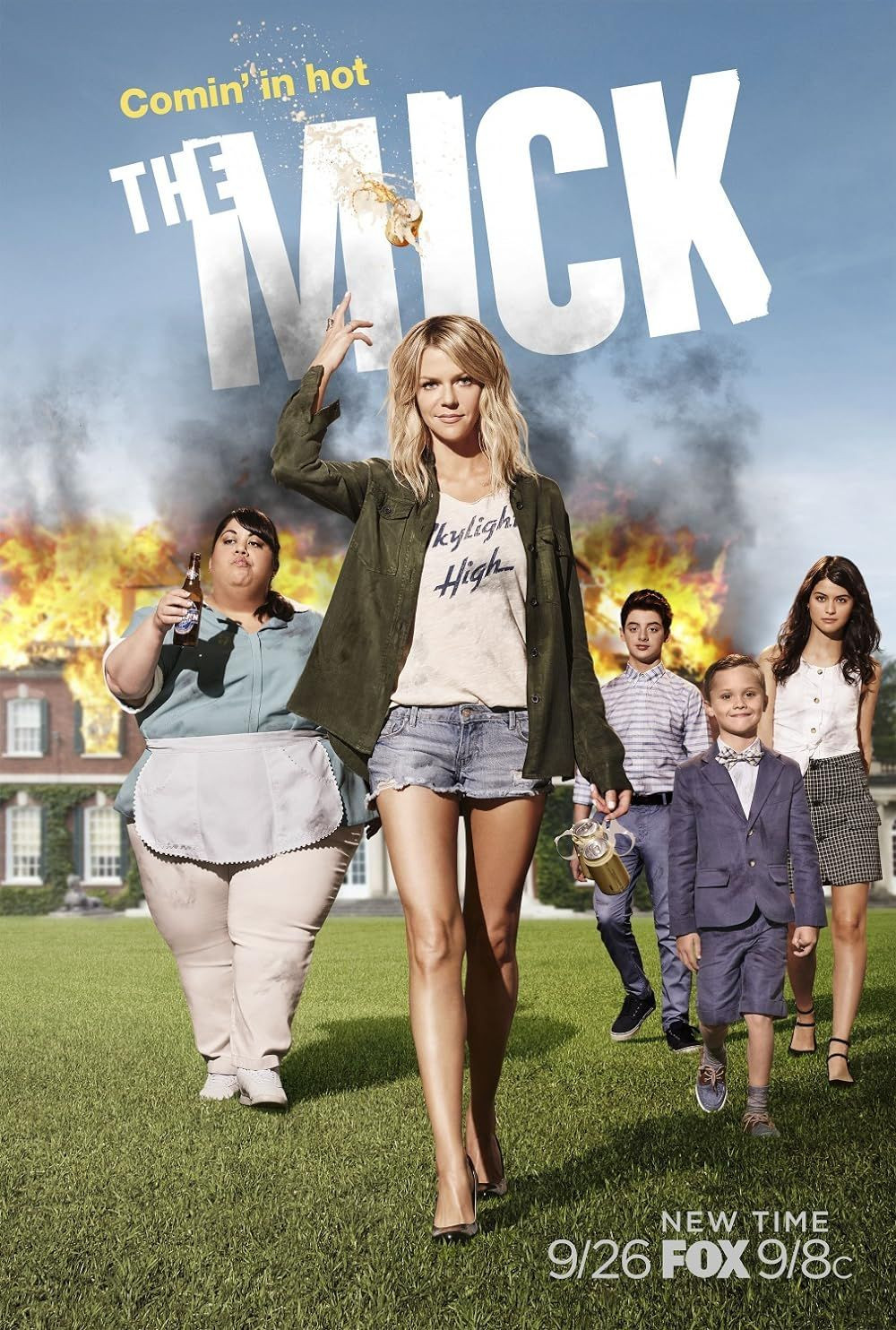 Mickey and the Kids in The Mick
Mickey and the Kids in The Mick
Modern Family refreshingly portrays parents as imperfect individuals who make mistakes and learn as they go, challenging the traditional sitcom portrayal of always-competent parents. This embrace of parental imperfection is a key element in Modern Family’s relatable charm, acknowledging that parenting is often a messy and unpredictable journey. The Mick takes this concept of flawed guardians to a more extreme and comedic level.
The Mick embraces the idea of a less-than-ideal guardian in a comedic fashion, pushing the boundaries of the imperfect parent trope seen in Modern Family. Kaitlin Olson stars as Mickey, an irresponsible woman who becomes the guardian of her niece and nephews after their parents face legal troubles. Mickey, completely unprepared for parenthood, must navigate raising three spoiled and privileged children, leading to chaotic and hilarious situations. While The Mick is edgier and more irreverent than Modern Family, both shows find humor in the imperfections of parental figures. Modern Family demonstrates that even experienced parents don’t have all the answers, while The Mick exaggerates this concept by placing an utterly unqualified individual in a parental role. Despite the edgier humor and more dysfunctional family dynamic in The Mick, both shows share an underlying sweetness and affection amidst the chaos, making The Mick a recommendation for those who appreciate shows like Modern Family but enjoy a more subversive and boundary-pushing comedic style.
11. One Day At A Time (2017-2020)
Cultural Celebration and Heartwarming Family Sitcom Feel Echo Modern Family’s Warmth and Diversity
One Day at a Time, Netflix’s reboot of the 1970s sitcom, distinguishes itself by focusing on a Cuban-American family, bringing cultural richness and diversity to the family sitcom genre. Modern Family also celebrates diversity through its blended family structure and characters from different cultural backgrounds. One Day at a Time further amplifies this by centering its narrative on a specific cultural experience, offering a unique perspective within the familiar sitcom framework.
One Day at a Time provides a heartwarming and unique sitcom experience, much like Modern Family, but with a distinct cultural lens. The show focuses on Penelope, a Cuban-American army veteran and single mother, and her family, exploring their everyday lives and challenges. Just as Gloria’s Colombian heritage in Modern Family adds a unique dimension to the show, One Day at a Time incorporates Cuban culture into its storylines and character interactions, creating a fresh and culturally rich sitcom experience. While Modern Family adopted the mockumentary style, One Day at a Time embraces the traditional multi-camera sitcom format, offering a nostalgic throwback feel while still tackling contemporary themes. For viewers seeking shows like Modern Family that combine heartwarming family stories with cultural representation and classic sitcom sensibilities, One Day at a Time is a perfect fit.

